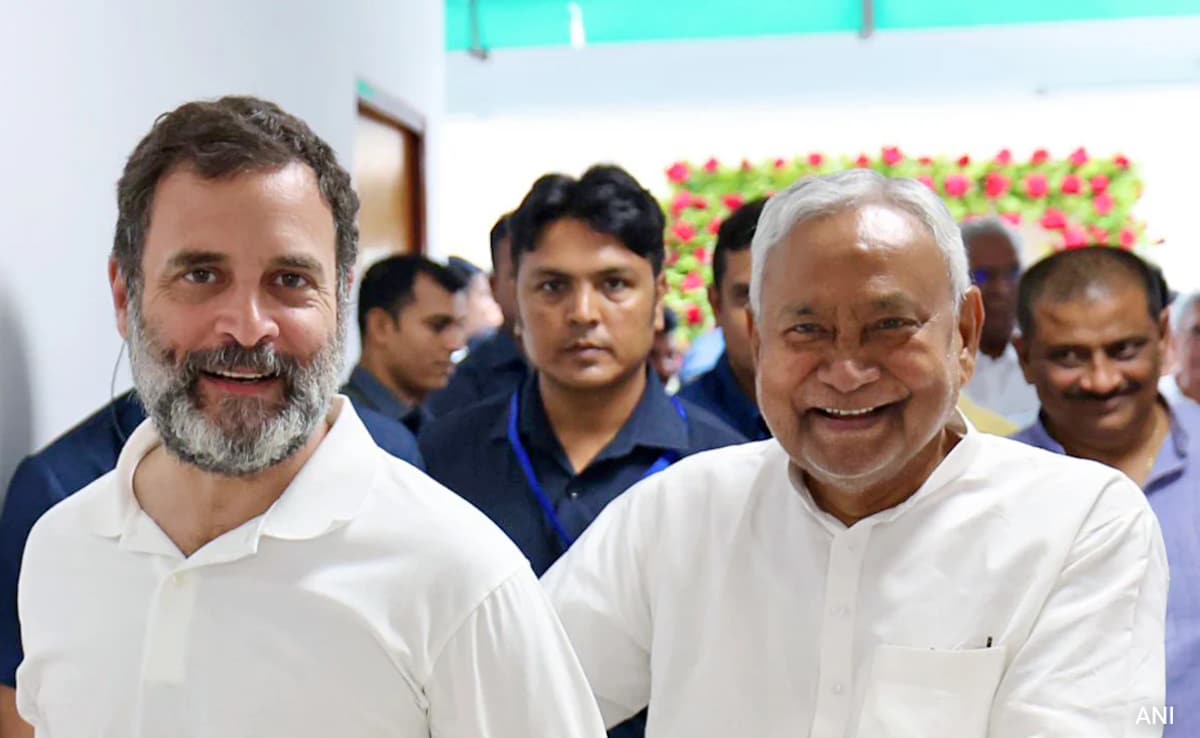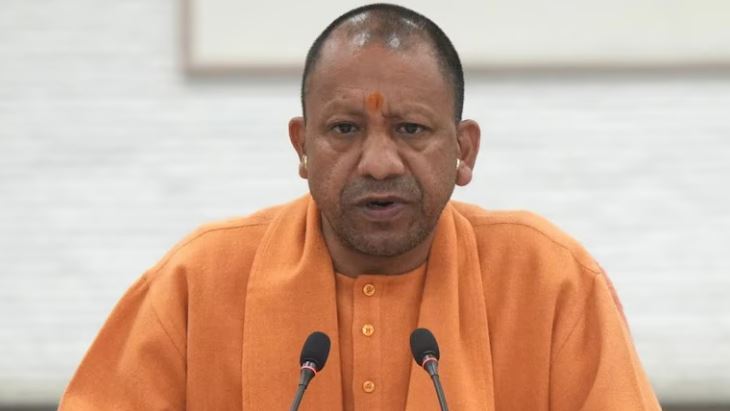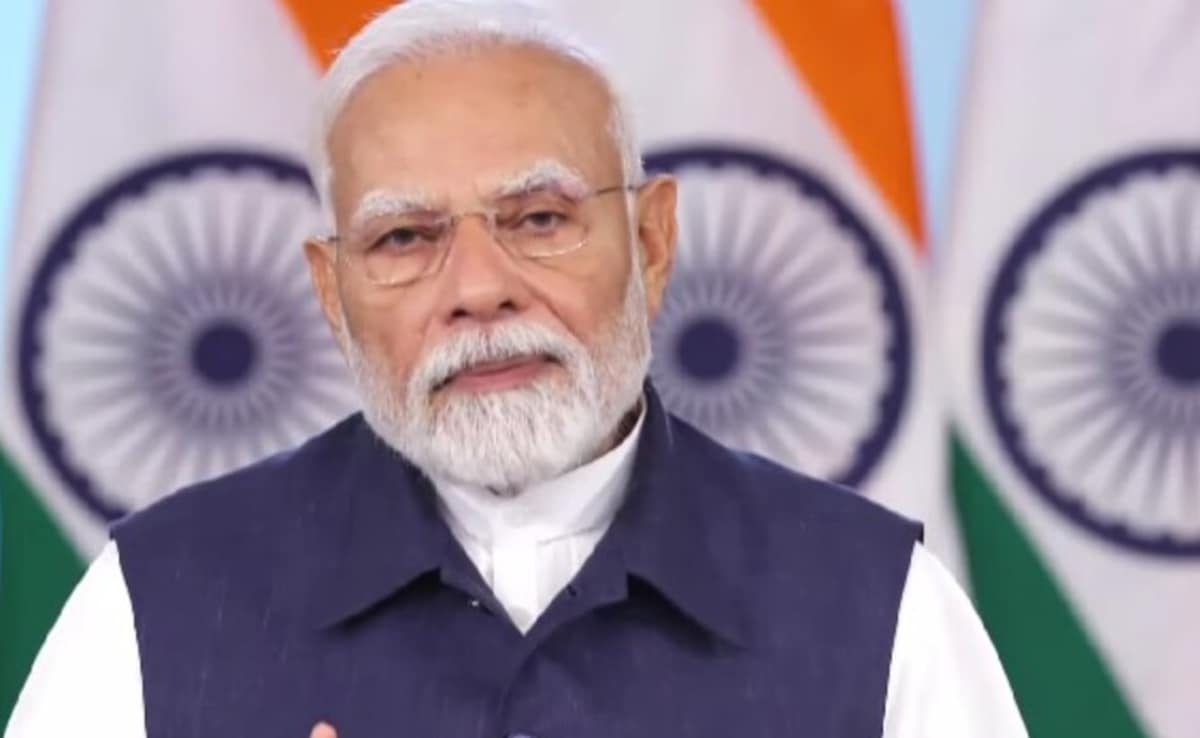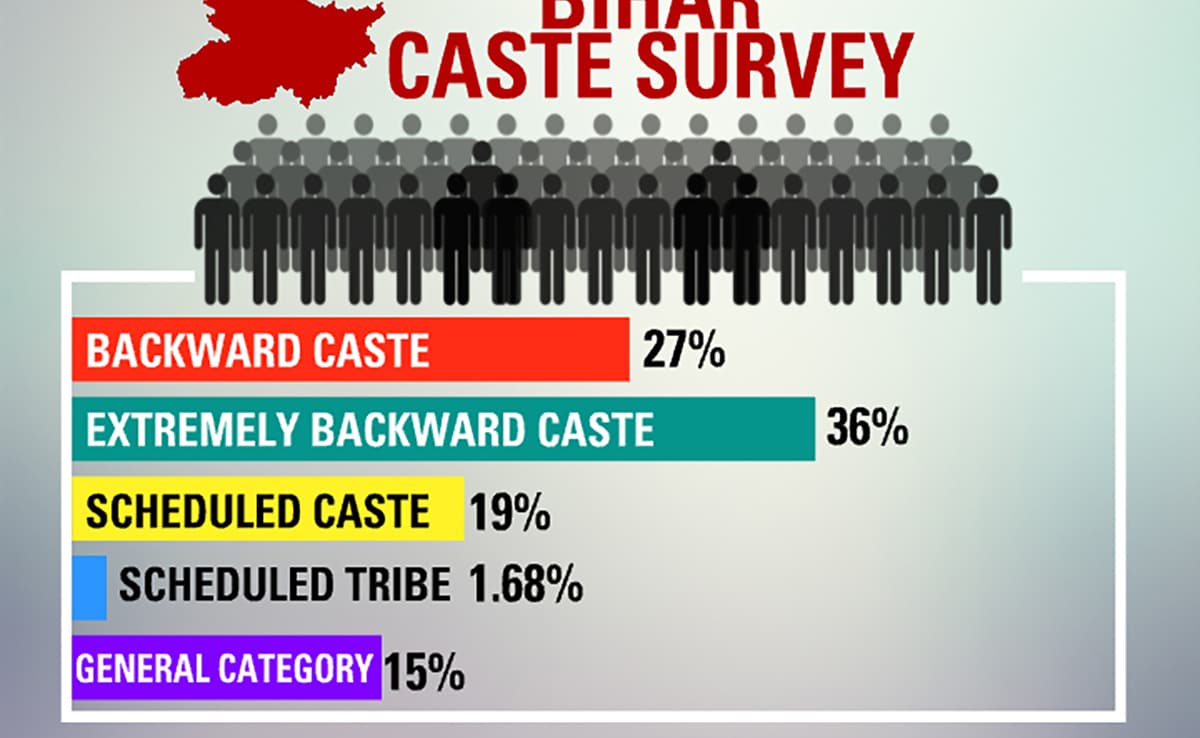NDTV Explains: The Caste Census Roller Coaster In Indian Politics
The last time the census in India included questions on caste was in 1931, when the British ruled the country. In fact, the British - for obvious reasons - did so in every census.

Census, survey, or enumeration... whatever the suffix, for the first time since 1931 India will count the men, women, and children in each of the hundreds of castes and sub-castes that make up its complex socio-cultural fabric, the government said on April 30 afternoon.
Union Minister Ashwini Vaishnaw confirmed the caste census - throwing jabs at the Congress as he did so - at a press briefing following a meeting of the Cabinet Committee on Political Affairs.
The political bickering - focusing on the battle for credit that will be claimed from voters in elections in Bihar this year and Uttar Pradesh in 2027, both states with significant caste divisions - that erupted after will take up most of the headlines over the next few weeks.
Advantage BJP For Bihar, UP?
From that angle today's declaration has been seen as a clever move by the ruling BJP - to pull the rug out from under the feet of its rivals, robbing the Congress and its state allies, the RJD in Bihar and the Samajwadi Party in UP, of potent weapons to use in their poll campaigns.
The Congress and its allies had been fiercely critical of the BJP for ignoring calls for a caste count, accusing Prime Minister Narendra Modi's party of sidelining marginalised communities.
But BJP leaders can now go to voters in Bihar and UP and claim credit for delivering on the caste census they wanted, while chanting, "They were in power for so long but never did anything...."
That is key because the Congress did seem to have the BJP on the ropes on this issue, armed with the knowledge the Bihar caste survey was held when it was part of the ruling alliance.

The Congress and the JDU were allies when Nitish Kumar presented the Bihar caste survey (File),
Subsequent surveys in Telangana and Karnataka - both won by the Congress after caste count promises - put extra pressure on the BJP for Bihar and UP, two states it cannot afford to lose.
The Congress has hit back, of course, and will continue to claim credit, and the RJD and the JDU and the Samajwadi Party (and Mayawati's BSP too, seen as a spent force in UP) will join in.
But there is a larger story here - about why the caste census matters and how it has dominated the political narrative - starting with the British in the late 1800s and rumbling on over the next century-and-a-half, with stops at 1931 and '47, and 2010, '23, and now 2025.
Bihar's Caste Survey
The starting point we take, however, is 2022, when Bihar Chief Minister Nitish Kumar - who has consistently championed a caste census - ordered a state-wide enumeration.
Bihar became the first state to author such an exercise.
That survey confirmed that over 60 per cent of Bihar's population was from Extremely Backward or Backward Classes, and that another 22 per cent was from Scheduled Tribes or Castes.
READ | Bihar Caste Survey: 27% Backward Classes, 36% Extremely Backward
Those numbers will be in big, bold letters for all parties campaigning in Bihar later this year.
And corresponding numbers for UP, which should be gathered when the Census is conducted next year, will be in similarly big fonts in the 12 months leading up to the election in that state.

Yogi Adityanath must solve the caste conundrum to win a 3rd term as UP Chief Minister (File).
The Bihar survey was key for the opposition INDIA bloc - of which Nitish was a part before he jumped to the BJP - to ramp up pressure on the government before the 2024 election.
The BJP could not openly object to the exercise without alienating swathes of voters from marginalised communities; its Bihar unit leaders voted unanimously for the state survey.
However, the party was also aware this risked splitting its Hindu voter base, an unwelcome prospect after a chastening defeat in the 2021 Bengal election.
In November 2023, a month after the Bihar data was released and pressure continued to grow, Amit Shah delivered a calibrated response, saying the BJP had never opposed a caste census.
Ahead of the Chhattisgarh election, he said the BJP only wanted foolproof implementation.
READ | Caste Census Takes Centre Stage, Amit Shah Says BJP Never Opposed
That statement, though, seemed at odds with the government's 2021 decision to conduct the next population census (eventually delayed because of the pandemic) sans questions on caste.

PM Modi's caste census move has been hailed as a masterstroke before Bihar and UP polls (File).
In fact, in September that year the government told the Supreme Court "... exclusion of information about caste (apart from SCs and STs) ... from the Census is a conscious decision".
It also seemed at odds with statements by other BJP leaders, including the Prime Minister's charge that the opposition's caste census demands reflected a desire to divide the nation.
The PM called any attempt at division (of society) on caste lines a "sin".
From that perspective, authorising a national caste enumeration is quite the U-turn, a point made sarcastically by Congress MP Rahul Gandhi in his response to the announcement.
The Congress and the opposition have claimed credit for the U-turn.
Congress Under Pressure Too
But it is not as if the Congress has never thought twice about a caste count.
Back in 2010, when the party was in power at the centre, at the head of the UPA government, a trio of state parties - the JDU, the Samajwadi Party, and the RJD - and some OBC leaders within the Congress itself, pushed hard for a caste census alongside the 2011 Census.
After a debate in Parliament - during which a BJP trying to expand its base backed a caste count - then Prime Minister Manmohan Singh agreed to a simpler caste headcount.
That report was finalised and published in 2016 but without the caste data, which is now (or should be) in the hands of the union government led by the BJP.
The Congress, under fire from on this score, has said it was removed from power (the UPA lost the 2014 election) before it could release the data and has dared the BJP to do just that.
"Modiji... you talk about OBCs. So then make those figures public so that it can be known how many OBCs are there in the country..." the party has said in a note on its website.
India's Last Caste Census
The last time the census in India included questions on caste was in 1931, when the British ruled the country. In fact, the British - for obvious reasons - did so in every census.
Since then, though, caste has never really featured in the Census.
Over the last four-odd decades, however, there have been regular calls to count castes and sub-castes. A phalanx of political leaders from OBCs, including Nitish Kumar, from regional parties added their voices to those calls, and the Mandal Commission was set up in 1979.
The commission and its landmark (an overused term in some contexts, but not this) recommendations, which included upgraded quotas, triggered a massive row.
It took 11 years for those recommendations to be implemented.
In a very real sense, it was the Mandal Commission that thrust caste back into the national spotlight, particularly after it called for reservations in government jobs and colleges.
Those quotas - capped at 50 per cent by the Supreme Court, a cap that was challenged after the Bihar caste survey - led to huge protests and questions began to be asked about the accuracy of data available to the Commission. That, in turn, led to caste count calls.
As an aside, between the 1931 census and the 2010 drama, the union government, in 1961, allowed states to conduct their own surveys and prepare state-specific lists of OBCs.
This was in response to demands for affirmative action for socially and educationally backward groups beyond SCs and STs. However, no nationwide caste census was undertaken.
Why Is A Caste Count Important?
Because it is.
In a nutshell a caste census, independent India's first, should form an informed basis for policy-making in a country with deep-rooted economic, social, and cultural inequalities. It should allow governments to craft welfare schemes for specific marginalised groups. And it should empower those groups, allowing them to band together to press for access to basic rights.
At a basic level, it should allow governments to fine-tune existing quotas, perhaps even freeing up college seats and jobs for a general category that often complains of 'mistreatment'.

The Bihar caste survey was the first by a state in independent India (File).
But before we go any further, there is one hugely contentious decision that still remains.
What is caste? And how may we best create a questionnaire to captures its complexities.
There are also potential legal challenges.
Do questions on caste infringe on an individual's right to privacy under Article 21? How can the data be protected, to guard against further marginalisation of already oppressed communities?
Ultimately, though, there can be little doubt that a caste census is needed. It only falls to the government and the opposition to work together, if possible, to ensure it is conducted safely.
NDTV is now available on WhatsApp channels. Click on the link to get all the latest updates from NDTV on your chat.
-
Aircraft Carriers And Fighter Jets: US Preps For Iran Attack, Israel Watches
Trump has repeatedly threatened military action against Iran over the protesters' deaths, even claiming American pressure had forced Iran to cancel plans to execute thousands of people.
-
Bangladesh Planning New Barrage On Padma River As Farrakka Talks Stall
The Bangladesh Water Development Board (BWDB) is now preparing to implement the long-delayed Padma Barrage project at a cost of 50,443.64 crore Taka.
-
Beyond Ikkis, Border 2 - The Lesser-Known Story Of A Two-Time War Veteran
Directed by Sriram Raghavan, Ikkis (meaning 21) focuses on the life of Second Lieutenant Arun Khetarpal of The Poona Horse.
-
Opinion | Why India Must Applaud - And Learn From - Carney's Davos Speech
In the current world order, while hegemons can go it alone, everyone else is on the menu if they aren't at the table. That is the takeaway from Carney's speech, and that is what India needs to acknowledge as it tries to chart a course of its own.
-
Opinion | The Greenland 'Secret' Trump Doesn't Quite Like Talking About
Rare earths, billionaires, and the soft rebranding of a land grab - the reality behind Trump's Greenland threats.
-
Opinion: How China Got Trapped In Its Own 'Export Miracle'
China is producing too much, selling too cheap, and is in danger of running out of buyers. Has its economic model reached its peak?
-
Opinion | Pawars, Thackerays, Congress: One By One, Maharashtra Is Moving On
The BJP's victories across regions (it won 23 of the 29 corporations), including the country's plum municipality, the cash-rich BMC, shows how deeply it has dug roots in a state once synonymous with the Congress, the Pawars and the Thackerays.
-
Opinion | Mumbai Polls: How The 'Marathi Manoos' Campaign Ended Up Uniting Others Against It
Mumbai's demographic transformation over the past two decades has been dramatic. The city is now home to millions of migrants from across India, who felt directly threatened by the Thackerays' rhetoric.
-
Opinion | The Great Nobel 'Giveaway': Machado About Nothing?
If the goal of politics is to get everything you want while giving up nothing, Trump has had a banner Venezuelan week.
-
Opinion | 'It'll Divide Society': Why Congress Buried The Mandal Report For Years
Indira Gandhi was vetoed four times by her cabinet colleagues from implementing the Mandal Commission report, something that could have been a game-changer for the Congress.
-
News Updates
-
Featured
-
More Links
-
Follow Us On










